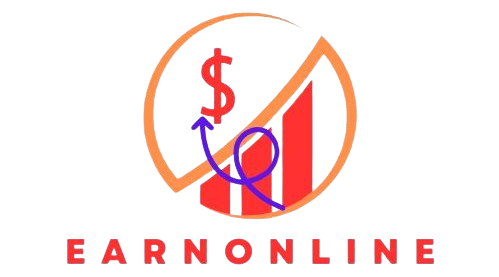Table of Contents
ToggleIntroduction: Freelance vs. Full-Time Job:
In this blog you will learn about freelance vs full time jobs.The world of work is changing fast, and with it comes a big question: Which one is better for you, a freelancing vs a full time job? As more people break away from the traditional 9-to-5 office job, many find freedom in freelancing. At the same time, full-time jobs still offer stability, benefits, and career growth opportunities many crave. But how do you choose between these two?
Whether you’re just starting your career or looking for a new direction, understanding the differences between freelancing and full-time employment can help you make a choice that fits your lifestyle, goals, and personality. In 2025, the decision becomes even more important, with remote work, flexible hours, and various gig opportunities reshaping the workforce.
This article will guide you through the pros and cons of freelancing and full-time jobs, helping you determine which path suits you best. By the end, you’ll have a clearer picture of what each option brings to the table. So, let’s dive in and explore what makes freelance work stand out – and where full-time jobs still have the edge.
Benefits of Freelance Work:
Freelancing is no longer just a temporary gig or something for creative professionals. With the rise of remote work and a growing gig economy, more people choose freelancing as a full-time career path. But what makes freelancing so appealing?.
Flexible Work Schedule & Work-Life Balance:
One of the biggest draws of freelancing is the ability to set your hours. Whether you are an early bird or a night owl, freelancing allows you to work when it suits you best. You’re not locked into the standard 9-to-5 workday.
This flexibility also gives you better control over your work-life balance. Want to take a day off for a personal reason? No problem. Need to schedule your work around a family event or personal hobby? Freelancing makes that possible. For many, this flexibility leads to a better overall quality of life, with less stress and more time for things that matter outside of work.
Control Over Projects and Clients:
When you work as a freelancer, you can choose which projects to take on and which clients to work with. This means you can focus on the types of work you enjoy or that align with your career goals. Unlike a full-time job, where you may have to take on tasks you don’t enjoy or aren’t a perfect fit, freelancing lets you specialize and grow in the areas you’re passionate about.
Freelancers also have more control over their workload. You can decide how much work you want to take on, which can be a huge advantage if you’re looking for more variety or need to scale your work up or down. This level of autonomy and independence is a major selling point for people who value control over their professional lives.
Drawbacks of Freelance Work:
While freelancing offers numerous benefits, it’s important to consider the potential challenges that come with it. It’s not always as glamorous as it may seem. Here are a couple of significant drawbacks that might make you rethink the freelancing lifestyle:
Inconsistent Income & Lack of Stability:
One of the most significant downsides to freelancing is the uncertainty of inconsistent income. Freelancing can be unpredictable, unlike a full-time job, where you can rely on a steady paycheck every month. Some months may bring in a high income, while others might be slow, depending on the number of projects you land. This can make budgeting and planning for the future difficult, especially if you’re living paycheck to paycheck or have family obligations.
This lack of stability can also impact your mental well-being. Worrying about the next client or the next paycheck can cause unnecessary stress. Building a steady stream of clients might take time, making the early days feel financially tough.
Self-Management Challenges and Overwork:
Freelancers are their bosses, which sounds great, but you must manage everything yourself. Freelancing demands a lot of self-discipline, from finding clients and negotiating contracts to handling your taxes and managing deadlines. Some people thrive in this environment, but the constant juggling can be overwhelming for others.
Another issue is overwork. Without a boss telling you when to go home, it’s easy to fall into the trap of working too much. Many freelancers work to meet deadlines, build their client base, or make up for slower months. This can lead to burnout, especially if you struggle to balance multiple projects or clients simultaneously.
Advantages of a Full-Time Job:
Full-time jobs have been the traditional route for a reason. They offer certain benefits and structures that freelancing can’t match. Let’s look at the advantages that make full-time employment attractive to many people.

Steady Paycheck & Health Benefits:
One of the biggest reasons people choose full-time employment is the security of a regular paycheck. Knowing you’ll receive a steady income every two weeks or months provides financial peace of mind. For many, this is essential, especially if they have family responsibilities, loans, or big life expenses like buying a home or saving for retirement.
In addition to a stable salary, full-time jobs typically come with employee benefits like health insurance, paid time off, and retirement savings plans. These benefits can add significant value to your overall compensation and give you a sense of security about your long-term health and future. In freelancing, you often have to arrange and pay for your insurance and benefits, which can be expensive and complex.
Career Growth, Training, and Professional Development:
Full-time employment offers excellent opportunities for career growth and professional development. Employees can access structured training programs, mentorship, and promotions in many organizations. This environment can be ideal for people who want to develop a specific skill set, climb the career ladder, or gain experience in their field.
Full-time jobs also provide networking opportunities. Working alongside colleagues and professionals in your industry can help you build connections that might lead to new projects, partnerships, or even job promotions. This collaborative environment can boost your confidence and create opportunities that might be harder to access as a freelancer, where you often work alone.
Drawbacks of a Full-Time Job:
While full-time jobs come with many benefits, they’re not without their downsides. Understanding the challenges of being a full-time employee is important before deciding whether this path is right. Let’s explore the drawbacks.
Limited Flexibility and Autonomy:
One of the most significant downsides of a full-time job is the lack of flexibility. Unlike freelancers, full-time employees must adhere to a set work schedule—9-to-5 or another fixed shift. While some companies offer remote work options or flexible hours, the reality is that most full-time jobs still require you to work within certain hours and locations.
This lack of flexibility can frustrate individuals who value autonomy over their workday. A full-time job might feel restrictive if you want to take a midday break to run errands, pick up your kids, or have a flexible routine. Even with vacation days or paid time off, you can’t always escape the structure that full-time employment imposes.
Less Control Over Work Environment:
You often have little control over your work environment in a full-time job. From the office setup to the company culture, there’s little flexibility to tailor your workspace to your preferences. This can be a major downside for people who enjoy the freedom to design their work atmosphere, as they can’t choose their colleagues or dictate the work culture they’re surrounded by.
Moreover, office politics can be a challenge. Navigating office dynamics, dealing with micromanaging bosses, or handling interpersonal conflicts can make a full-time job feel less than ideal for some. On the other hand, freelancers can choose their clients and work environments, often leading to fewer frustrations in these areas.
Freelance vs Full Time Job: Which Is Right for You?
Deciding between freelancing and a full-time job isn’t easy, and the right choice depends largely on your personal goals, work habits, and lifestyle preferences. Let’s break down some key factors that can help guide your decision.
Which Is Better for Your Career Goals?
Freelancing can be a great option for people who want to be in charge of their career path and specialize in a particular field. Suppose you’re passionate about a specific type of work and want to control the projects you take on. In that case, freelancing can allow you to build expertise and grow in areas you’re truly passionate about.

On the other hand, full-time employment is ideal for individuals looking to build a long-term career in a structured environment. If you want to move up the corporate ladder, gain experience in a larger organization, or have access to more extensive training and mentoring, a full-time job might be the right choice.
Key Factors to Consider Before Deciding:
Before making a final decision, think about these important factors:
- Financial Security: If you need financial stability and benefits like health insurance, a full-time job offers a more predictable income. Freelancing, while potentially more profitable in certain fields, often comes with the uncertainty of fluctuating income.
- Work-Life Balance: Do you value flexibility and the ability to set your schedule? Freelancing is the winner here, allowing you to work at your own pace. Full-time jobs, however, may require you to work rigid hours, leaving little room for personal freedom.
- Autonomy vs. Structure: Freelancers have the advantage of complete autonomy over their work, but this can also lead to a lack of structure. Full-time employees may appreciate the stability and clear structure, but they often have to follow company rules and policies, which can feel limiting.
Personal Preference:
Your choice may come down to what work culture suits your personality. Are you someone who thrives in a team-oriented environment, enjoys structure, and values job security? If so, a full-time job may be the best option. Freelancing could be better if you enjoy independence, flexibility, and the chance to work on various projects.
Conclusion: Making the Right Choice Between Freelance and Full-Time Jobs:
The decision between freelancing and a full-time job is deeply personal, and there’s no one-size-fits-all answer. Both paths offer unique opportunities and challenges; the best choice depends on your priorities, lifestyle, and career aspirations.
Freelancing provides unparalleled flexibility and control over your work life, making it an appealing option for those who value autonomy, variety, and the ability to work on their terms. However, it also comes with the risk of inconsistent income, self-management demands, and a lack of long-term stability.
On the other hand, full-time jobs offer financial security, professional growth, and a structured environment. They provide benefits such as health insurance and paid time off, which are hard to replicate as a freelancer. However, full-time work often comes with less flexibility and autonomy, making it less appealing for those who value personal freedom and control over their schedule.
Ultimately, the right choice comes down to your circumstances and goals. Whether you opt for freelancing or a full-time job, remember that both paths can lead to success if aligned with your values and ambitions. The key is to weigh the pros and cons, evaluate your priorities, and make an informed decision to support your long-term happiness and career development.
FAQs: Freelance vs Full Time Job:
Which is better: freelancing or a full-time job?
It depends on your personal goals. Freelancing offers flexibility, while full-time jobs provide stability and benefits.
Do freelancers make more money than full-time employees?
Freelancers can earn more, but income can be inconsistent. Full-time jobs offer a steady paycheck and benefits.
Is freelancing suitable for beginners?
Freelancing can be challenging for beginners due to the need for self-discipline and client acquisition. However, with persistence, it can be rewarding.
Can full-time jobs be flexible?
Some full-time jobs offer flexible hours or remote work options but are generally more structured than freelancing.
Which path provides better career growth opportunities?
Full-time jobs usually offer clearer career paths, promotions, and professional development. Freelancers must seek their growth opportunities.











